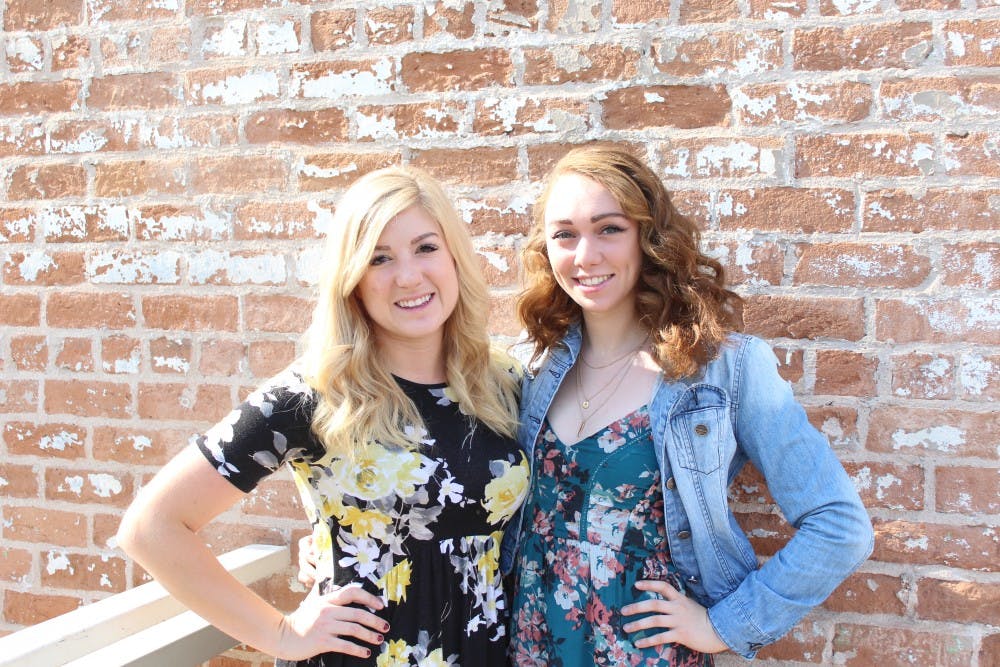ASU's College of Nursing and Health Innovation is offering a class this fall that provides a local perspective on an international issue: human trafficking.
HCR 394: Fundamentals of Human Trafficking, one of the first of its kind at ASU, is open to all majors and will give students an in-depth look into different aspects of the issue, ranging from pop culture's influence on trafficking to its scope at home and abroad.
The class, taught by instructor Samantha Calvin at the Downtown Phoenix campus, will have students create their own research projects and work with local nonprofit organizations like Red Light Rebellion to tackle the problem firsthand.
"It's hands-on," Calvin said. "We'll just have a lot of engagement with students much beyond the typical lecture classroom."
Develop real-world solutions to create change! To enroll in HCR 394: Fundamentals of Human Trafficking: https://t.co/6YTHsqRHsB pic.twitter.com/QeCbUrhfKy
— ASU SST (@ASUSST) May 15, 2017
Calvin, a graduate student pursuing a doctoral degree in Healthcare Innovation, said human trafficking was primarily discussed in schools of social work but needed to be addressed from other perspectives, especially in health care.
"So many of these girls see a health-care provider when they're actively being trafficked and don't get recognized," Calvin said. "I realized (that there was) a health-care systems issue and an education issue with providers... I wanted to bring that educational piece into the College of Nursing."
Calvin said she became passionate about the subject when she became a mentor for youth at StreetlightUSA, a nonprofit organization that helps victims of child sex trafficking and sexual abuse.
"I just fell in love with the population, and the complexity of the issue," Calvin said. "I had experiences in my adolescence that allowed me to relate to these girls in a way that most people couldn't."
Calvin began researching the issue and found that it was "unaddressed" and that schools needed to do "a better job" at educating students on the complexity of trafficking.
"When I told people that I was doing research in this area, their first response was, 'Oh, you must be doing it overseas or somewhere else,'" Calvin said. "They didn't realize it was a domestic issue as well as an international one."
The class had been suggested over a year ago but did not come to fruition until it had received vocal support from the McCain Institute for International Leadership.
Claire Sechler Merkel, the director of Arizona Initiatives for the McCain Institute, said the McCain Institute found that trafficked victims often come across health-care workers because of the violence involved with the issue.
"Many survivors have told us and others that, in the course of their time being trafficked, they came into contact with a lot of people who could've helped them but... didn't see them as victims of human trafficking," Merkel said.
Educating health-care workers on the signs of trafficking became important as a way to potentially stem the issue, according to Merkel.
"We took a step back and thought, many of the nurses of tomorrow are attending nursing school today," Merkel said. "If we could encourage ASU to be among the first universities to offer a course in human trafficking awareness and proper treatment to their nursing students, then that would be a wonderful thing."
Merkel said that, with the creation of the course, she hopes future nurses and practitioners will be "very well-prepared" in emergency situations to identify and treat survivors.
"The violence level in these trafficking cases is horrific," Merkel said. "This is a violent, horrible crime, and the victims suffer tremendously."
Kaitlyn Felix, a health sciences senior, said she plans to research physiological traits of survivors for her honors thesis in Calvin's class.
Felix's research focuses on post-traumatic stress disorder and self-destructive behaviors in survivors of human trafficking.
"People don't understand it happens in the Phoenix area," Felix explained. "It happens across the street and in all these stadiums. People often say things like, 'Don't people choose to be prostitutes?' and don't understand the psychological background."
Felix, who grew up in Los Angeles, said she grew up in a community where prostitution was "normal" and pimps were treated "like heroes."
"Even as a child, I knew that was wrong, but a lot of people where I come from wouldn't see it that way," Felix said.
Felix said she hopes the class will start a "conversation" among students and their peers, which would bring more attention to human trafficking's prevalence within their communities.
"It's very eye-opening to see the children and people who are trafficked," Felix said. "A lot of people slide under the radar and the only way to help this issue is to start talking about it, get it recognized, and just take it step-by-step."
There are still open spots for students to register for the fall class.
Reach the reporter at mphan2@asu.edu or follow @mvyphvn on Twitter.
Like The State Press on Facebook and follow @statepress on Twitter.




